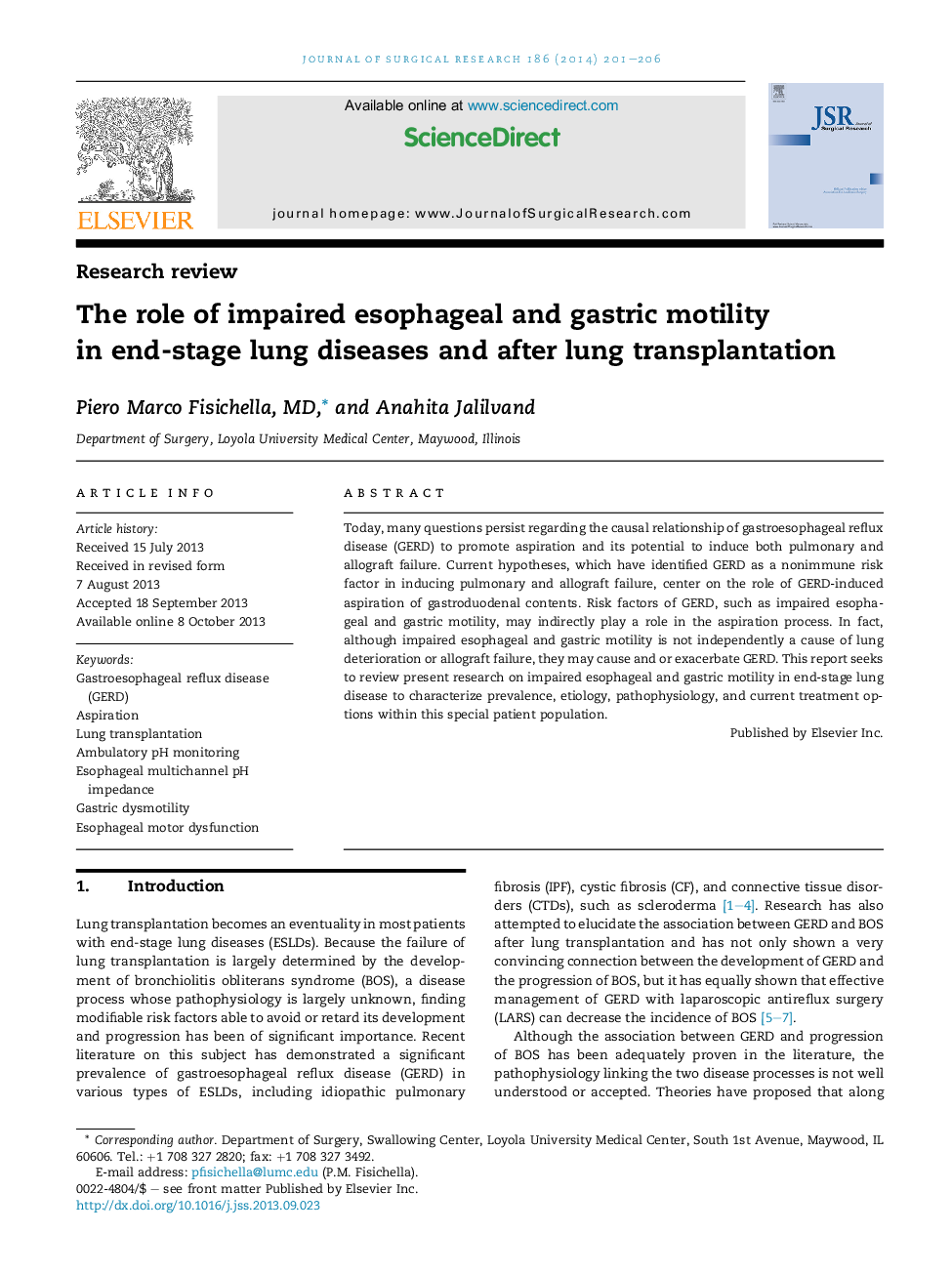| Article ID | Journal | Published Year | Pages | File Type |
|---|---|---|---|---|
| 6254154 | Journal of Surgical Research | 2014 | 6 Pages |
Today, many questions persist regarding the causal relationship of gastroesophageal reflux disease (GERD) to promote aspiration and its potential to induce both pulmonary and allograft failure. Current hypotheses, which have identified GERD as a nonimmune risk factor in inducing pulmonary and allograft failure, center on the role of GERD-induced aspiration of gastroduodenal contents. Risk factors of GERD, such as impaired esophageal and gastric motility, may indirectly play a role in the aspiration process. In fact, although impaired esophageal and gastric motility is not independently a cause of lung deterioration or allograft failure, they may cause and or exacerbate GERD. This report seeks to review present research on impaired esophageal and gastric motility in end-stage lung disease to characterize prevalence, etiology, pathophysiology, and current treatment options within this special patient population.
